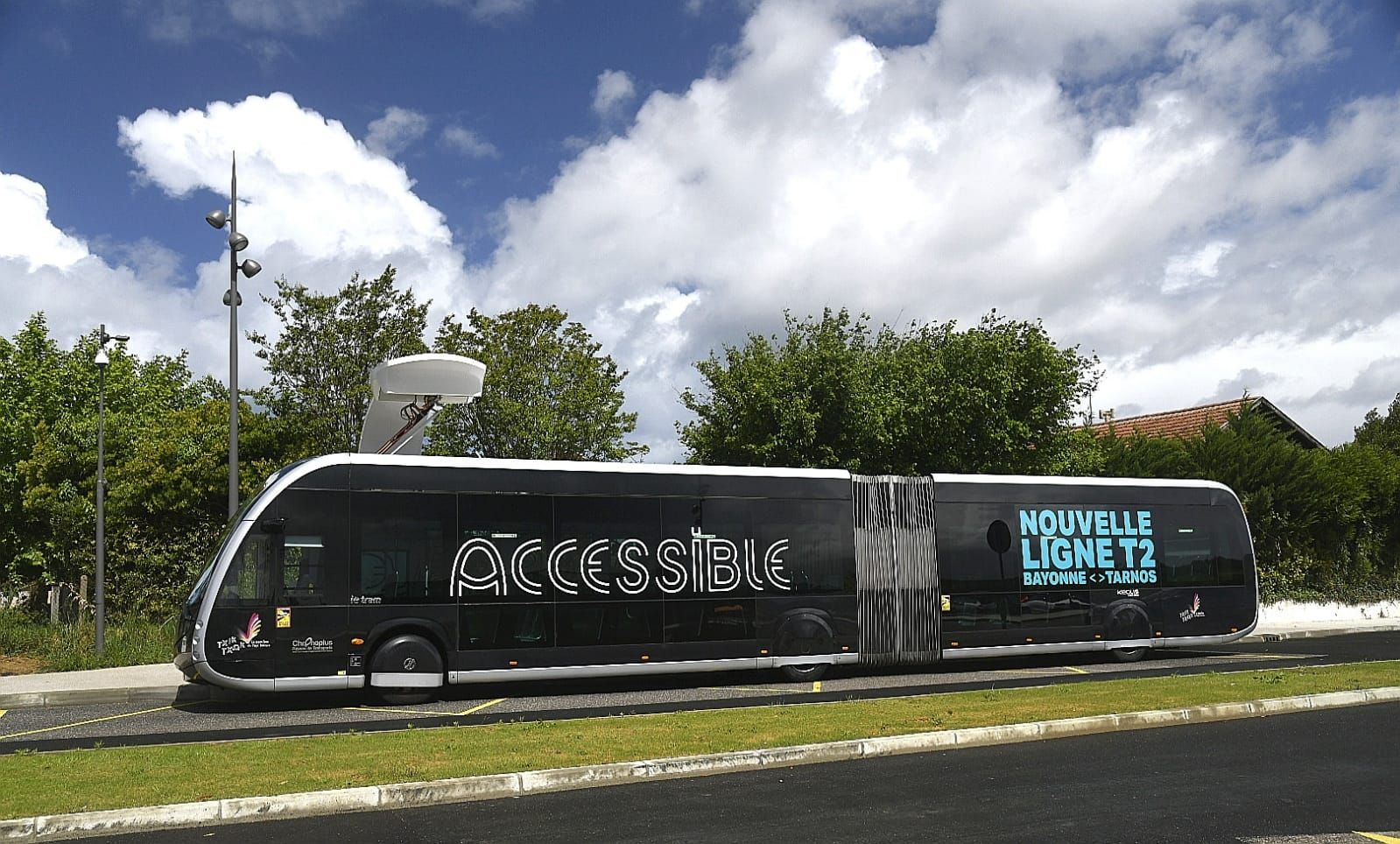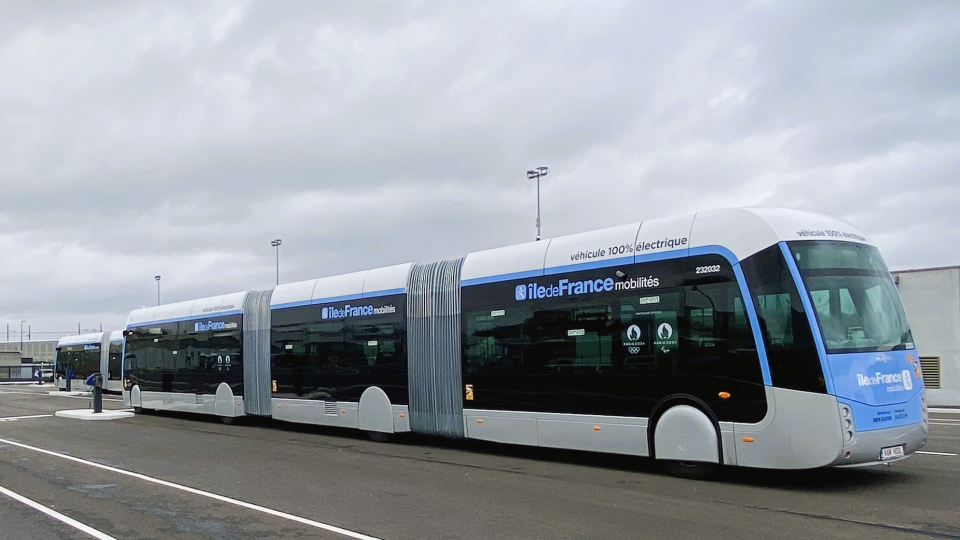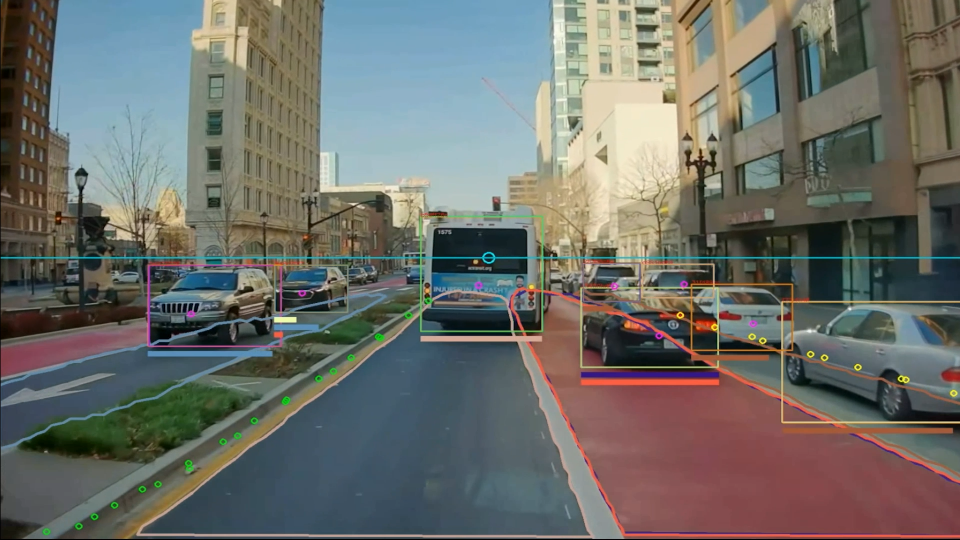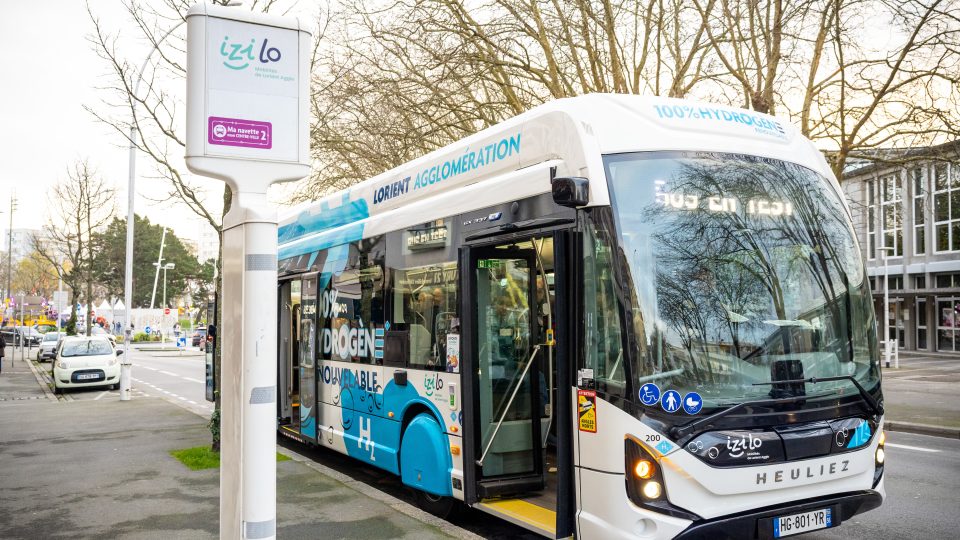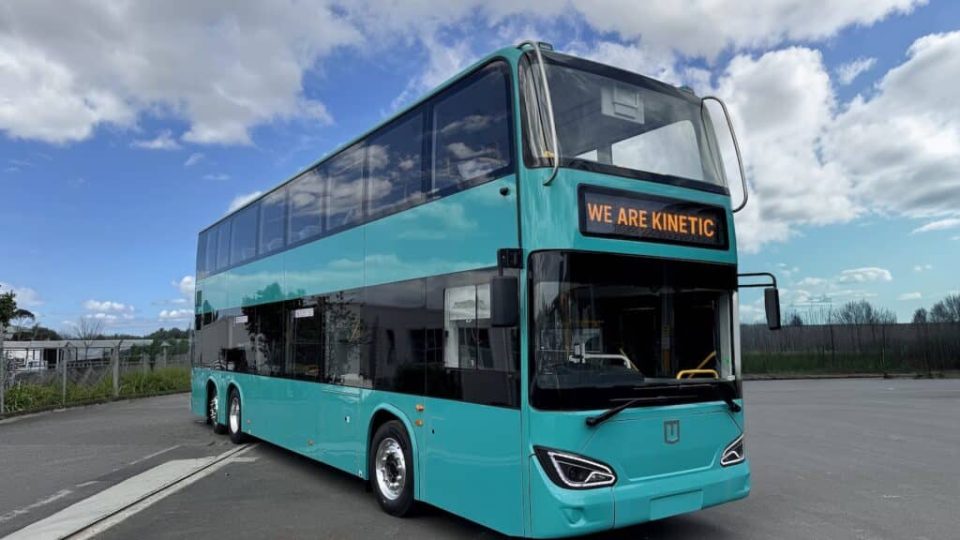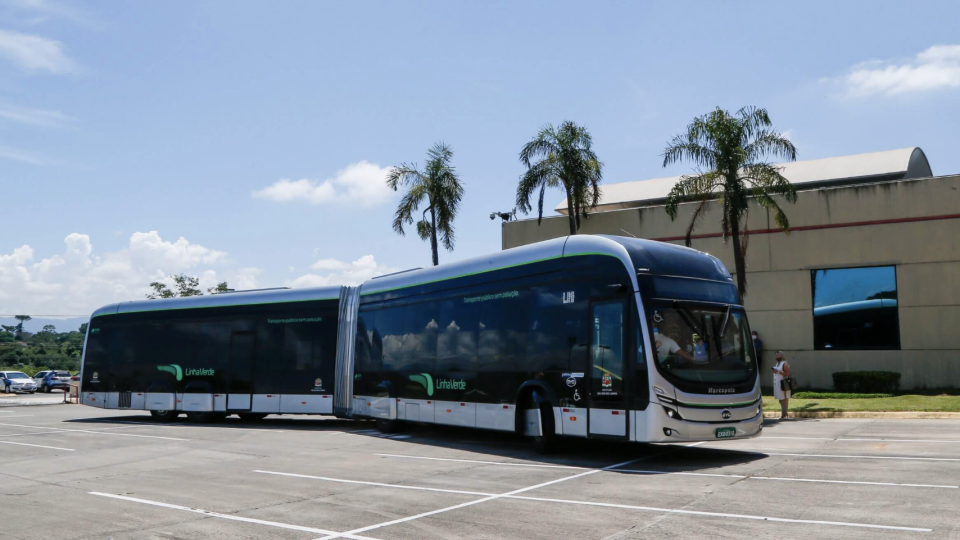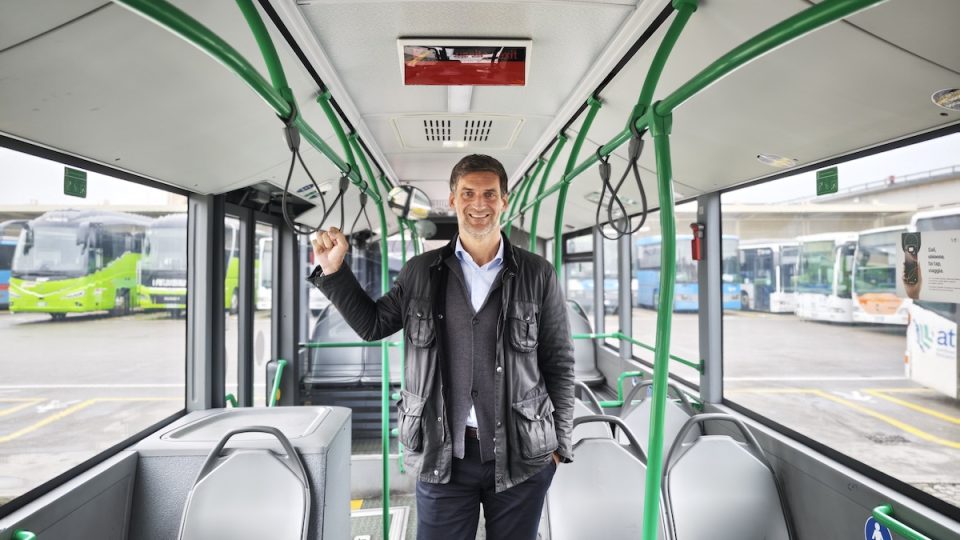A new e-BRT saw the light in France. Seven Irizar ie tram under Keolis’ operations
Keolis has launched a second 100% electric Bus Rapid Transit line on the Basque Coast, in France. The e-BRT was inaugurated on 26th April 2021 and it’s part of the Chronoplus transport network, linking Tarnos to Bayonne, in the south-west of France, on behalf of the Basque Country Public Transport Authority SMPBA (Syndicat des Mobilités […]
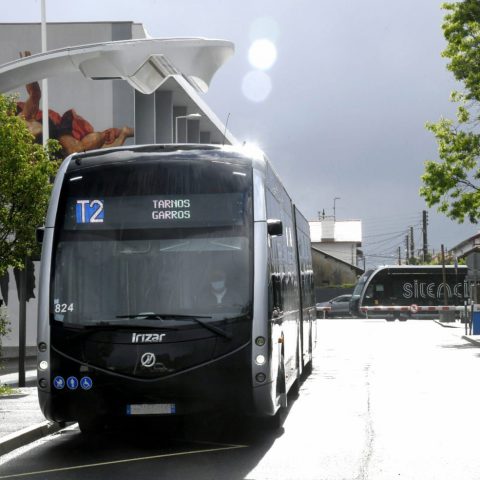
Keolis has launched a second 100% electric Bus Rapid Transit line on the Basque Coast, in France. The e-BRT was inaugurated on 26th April 2021 and it’s part of the Chronoplus transport network, linking Tarnos to Bayonne, in the south-west of France, on behalf of the Basque Country Public Transport Authority SMPBA (Syndicat des Mobilités Pays Basque Adour). The first e-BRT line, linking Bayonne to Biarritz, entered service in September 2019.
Worldwide, the French group operates over 4,000 vehicles running on alternative energy, which represents about 20% of its total bus fleet. Recently Keolis won a 100% electric bus contract in Gothenburg (Sweden).
Asked about the future scenarios for e-BRT concepts in Europe during the first event of the Sustainable Bus Tour 2021 (that see Keolis as a Mobility Partner), the group’s Director Center of Excellence Energy Transition-Bus Bruno Lapeyrie said: «We consider e-BRT a real wind of change in this industry. The BRT concept is potentially very interesting for e-buses. Compared on a CAPEX basis with tramways (20 – 30 million euros/km), the investment for an e-BRT can be much lower, with a capacity that is very close to the one of a tram. And you have more flexibility. Add to this the very futuristic shape of an e-BRT bus…».
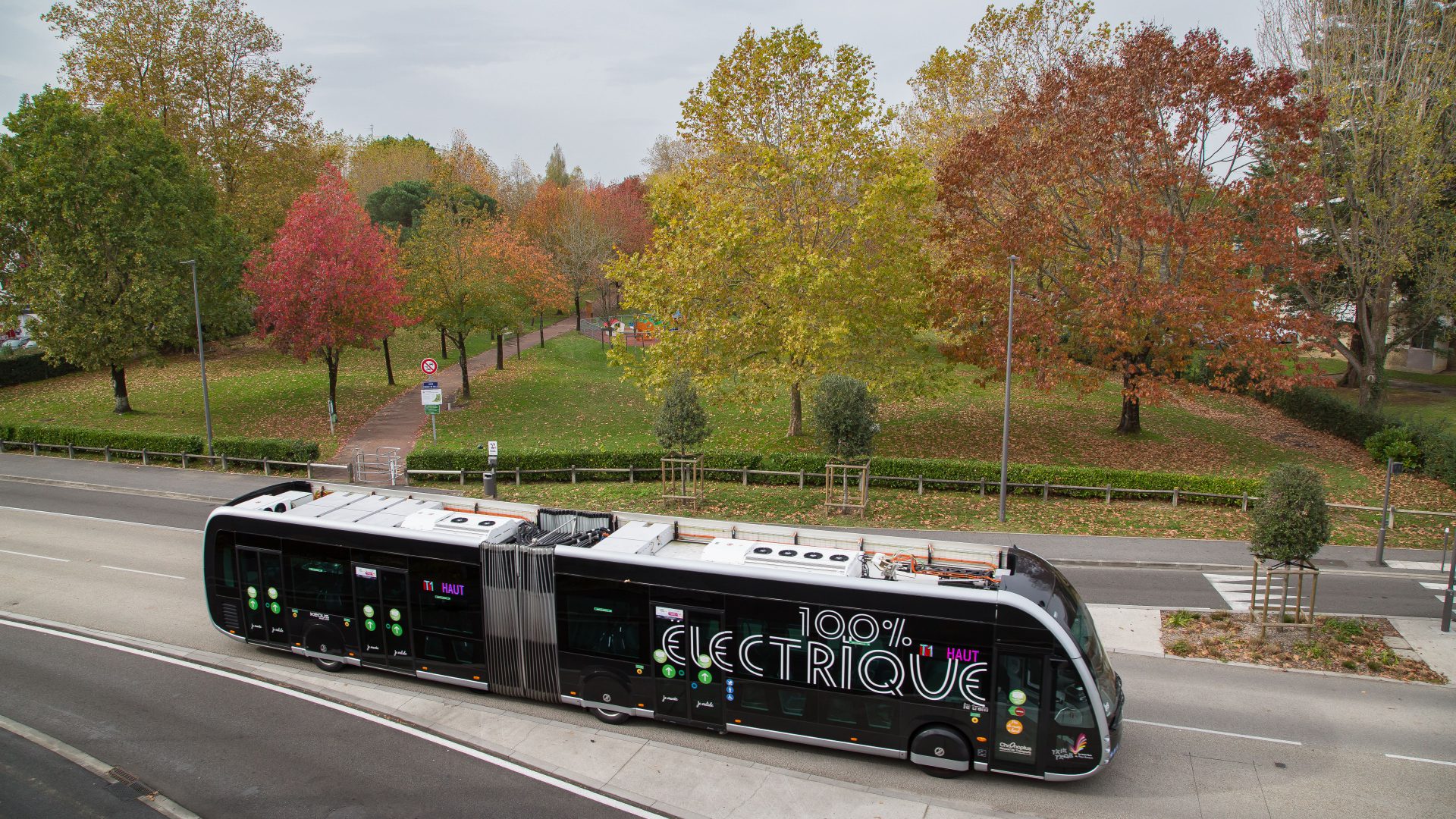
90,000 passenger per month on the Tarnos-Bayonne e-BRT
The new line is 10 km long and features 24 stations. Seven 100% electric vehicles (model Irizar ie tram) will carry approximately 90,000 passengers per month, Keolis points out. This new line will increase the transport offer by 25% (more frequency) and with the objective of increasing ridership by 50%.
From now on, over 40% of the journeys on the Chronoplus network will be made on electric vehicles.
From now on, over 40% of the journeys on the Chronoplus network will be made on electric vehicles. An innovative and structuring transport mode for the Chronoplus network Keolis has operated the Chronoplus network since 2017, providing mobility services to 165,000 inhabitants in the Basque Country conurbation, which includes eleven municipalities1 in the south- west of France.
From Bayonne to Tarnos in 20 minutes with Chronoplus’s e-BRT
In addition to the two 100% electric BRT lines, the network includes 16 bus routes, 19 school lines, six free electric shuttle services, a transport for people with reduced mobility (TPRM) service, a river link and two park-and-ride facilities. Launched on 26 April 2021, the second e-BRT line follows the same itinerary as former bus line 2, connecting the centre of Bayonne to the centre of Tarnos in 20 minutes.
We consider e-BRT a real wind of change in this industry. The BRT concept is potentially very interesting for e-buses. Compared on a CAPEX basis with tramways (20 – 30 million euros/km), the investment for an e-BRT can be much lower, with a capacity that is very close to the one of a tram. And you have more flexibility. Add to this the very futuristic shape of an e-BRT bus…
Bruno Lapeyrie, Director Center of Excellence Energy Transition-Bus at Keolis Group, during the first webinar of the Sustainable Bus Tour 2021
The line, as mentioned above, is 10 km long and comprises 24 stations, five of which are connected to the first e-BRT line. It serves the main activity hubs in the conurbation, including three secondary schools, the town halls of Bayonne and Tarnos, shopping and leisure centres featuring cinemas and sports parks, the Basque Coast hospital centre, the Bayonne SNCF train station and the new Tarnos park-and-ride.
The seven vehicles of the fleet will run on an extended timetable (from 6am to midnight on weekends (11pm in the short term due to Covid-19 restrictions) and every day in summer, at 15- minute intervals during the day.
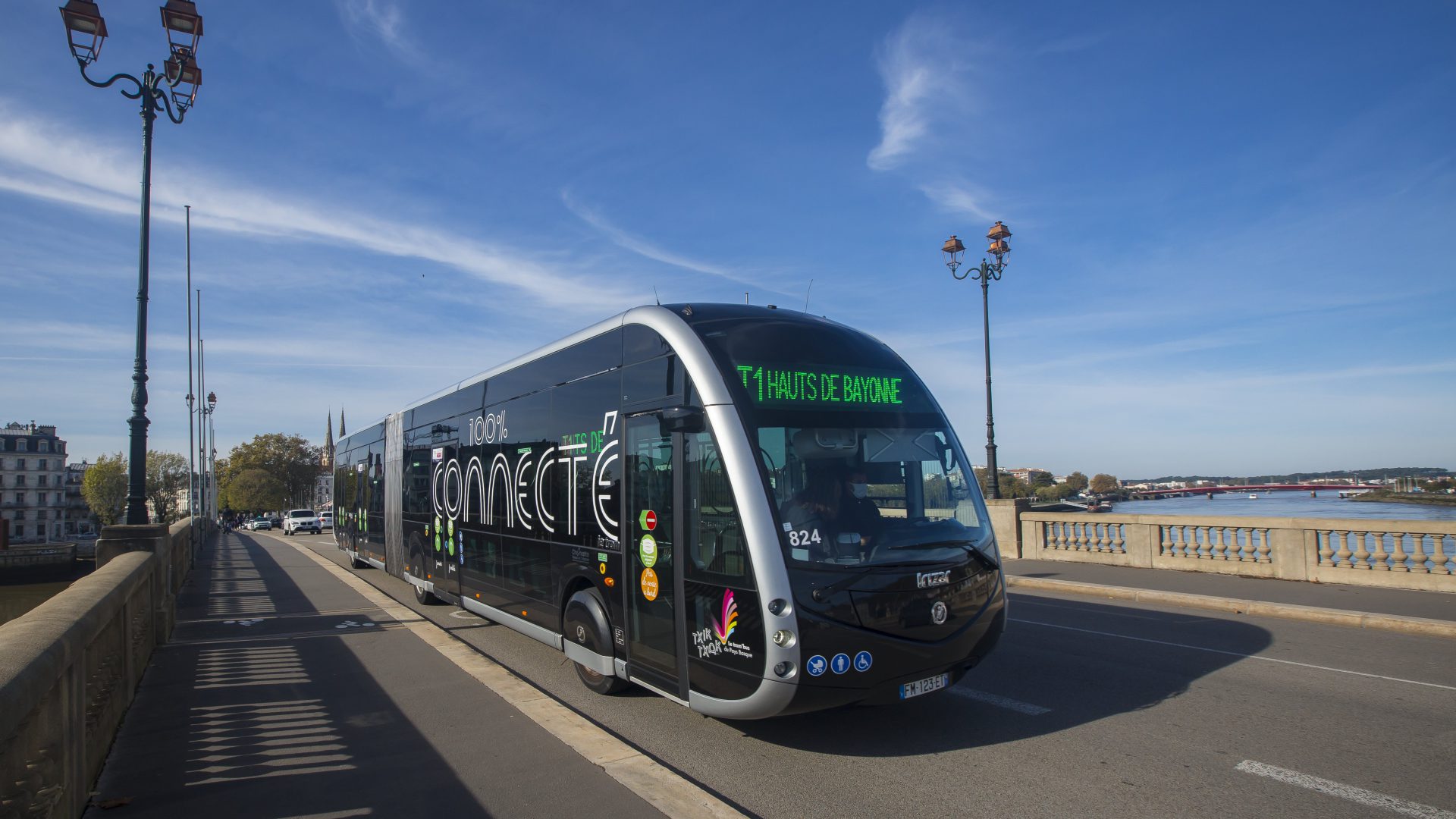
Irizar ie tram on Chronoplus e-BRT with fast charging
Built by the manufacturer Irizar, these 100% electric vehicles are 18 metres long with a 150 passenger capacity, including 38 seats equipped with USB sockets. Keolis strengthens that the vehicles benefit from a dual charging system, fast if carried out at the terminus (5 minutes on average) or slower if carried out at the depot at night (3 to 4 hours).
The launch of the line has been organised to coincide with the overhaul of the 24 stations to facilitate access to the vehicles for people with reduced mobility, deploy passenger information terminals (displaying arrival times in real time) and install automatic ticket machines.
A park-and-ride facility has also been created at the Tarnos/Garròs station to encourage the use of public transport. The P+R is free for Chronoplus network users and has 400 spaces, 145 of which are dedicated to car sharing.
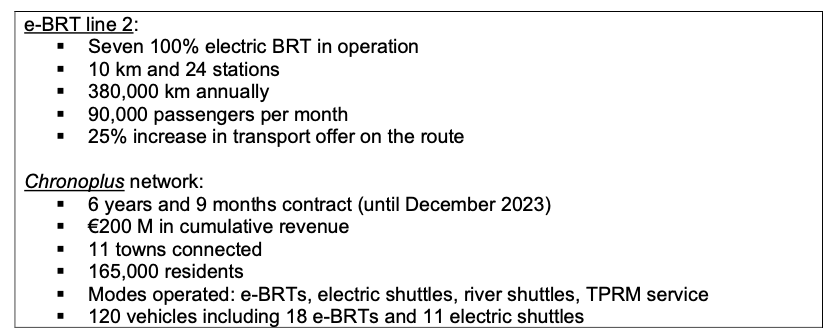
Keolis focus on energy transition
Keolis’ objective is said to be to promote and deploy more sustainable mobility solutions for cities and communities. After a watershed 2019 in terms of electric mobility, marked by the launches of several alternative energy mobility services such as the 100% electric bus rapid transit (BRT) services in Amiens and Bayonne-Anglet-Biarritz and the 100% hydrogen BRT service in Pau, the Group confirmed its commitment in 2020, notably by launching two major electric bus networks outside of France. In the Netherlands, in December 2020, the Group launched Europe’s largest electric bus network (246 vehicles). These electric buses, expected to travel 25 million kilometres per year, will lead to a reduction of nearly 15,000 tonnes of CO2 emissions, Keolis says. In Norway, in December 2020, Keolis began operating the 100% alternative energy bus network in Bergen, the Group’s first bus contract in the country.
